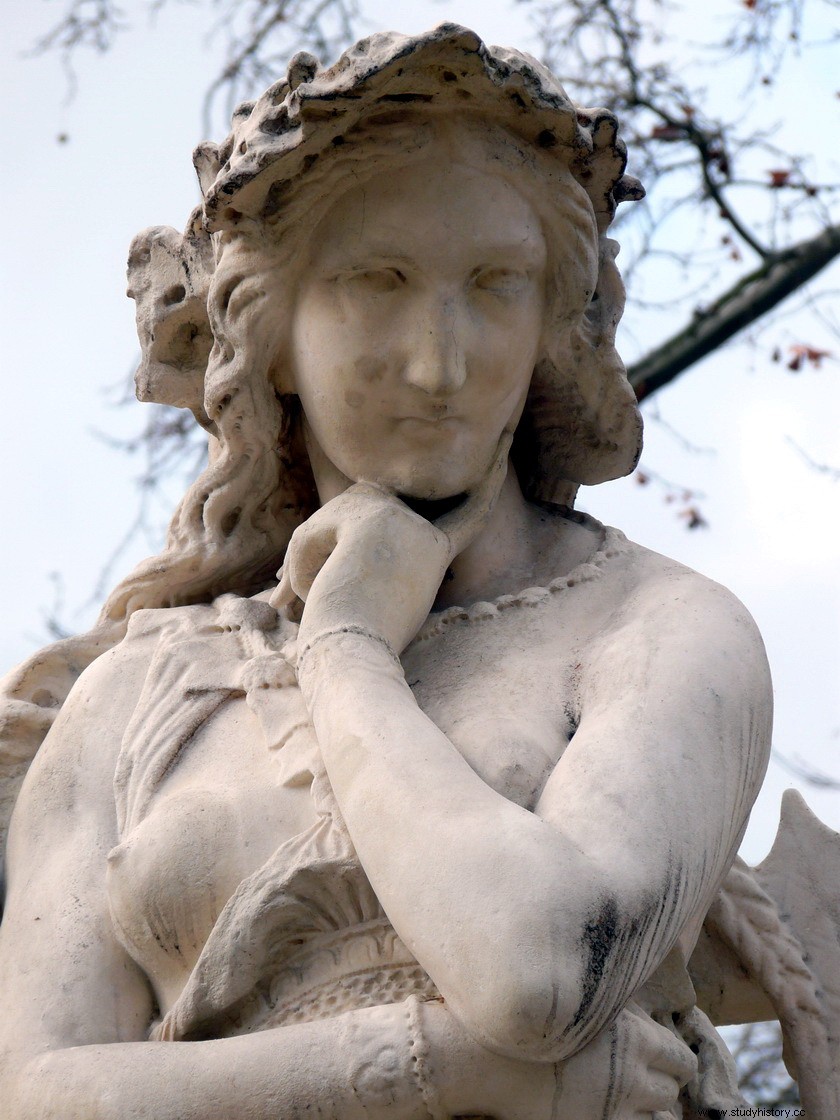Velleda or Veleda was a Germanic priestess and prophetess of the Bructera nation in the first century AD. Worshiped as the equal of the gods, she had a strong influence on the Germanic tribes.
She who sees
 Velléda, daughter of Segenax, lives in a tower near the Lippe River, a tributary of the Rhine. Her name would be a generic title for prophetesses, meaning "she who sees". At the time, the Germanic tribes believed in a prophetic divinity in women and the prophetesses were considered living goddesses.
Velléda, daughter of Segenax, lives in a tower near the Lippe River, a tributary of the Rhine. Her name would be a generic title for prophetesses, meaning "she who sees". At the time, the Germanic tribes believed in a prophetic divinity in women and the prophetesses were considered living goddesses.
During the second half of the first century AD, Velleda was thus venerated as a goddess and her influence is great among the Germanic tribes.
Tacitus, a Roman historian and senator, reports that the inhabitants of Colonia Claudia Ara Agrippinensium (now Cologne) entrusted Velléda with the arbitration of their dispute with a distant Germanic tribe.
Revolt against the Roman Empire
In 69, Civilis, the leader of the Batavians, a Gallic people, revolted against the Roman Empire and its emperor Vespasian and Velléda is credited with an important role in this rebellion, whether she prophesied it or even triggered it. During the fighting, a Praetorian trireme (combat galley) was captured and sent as a present to Velléda.
The revolt is subdued by force but the Roman legions are lenient with the insurgents and Velleda remains free for several years. In 77, the Romans ended up capturing her and bringing her to Rome, where she lived for several more years.
